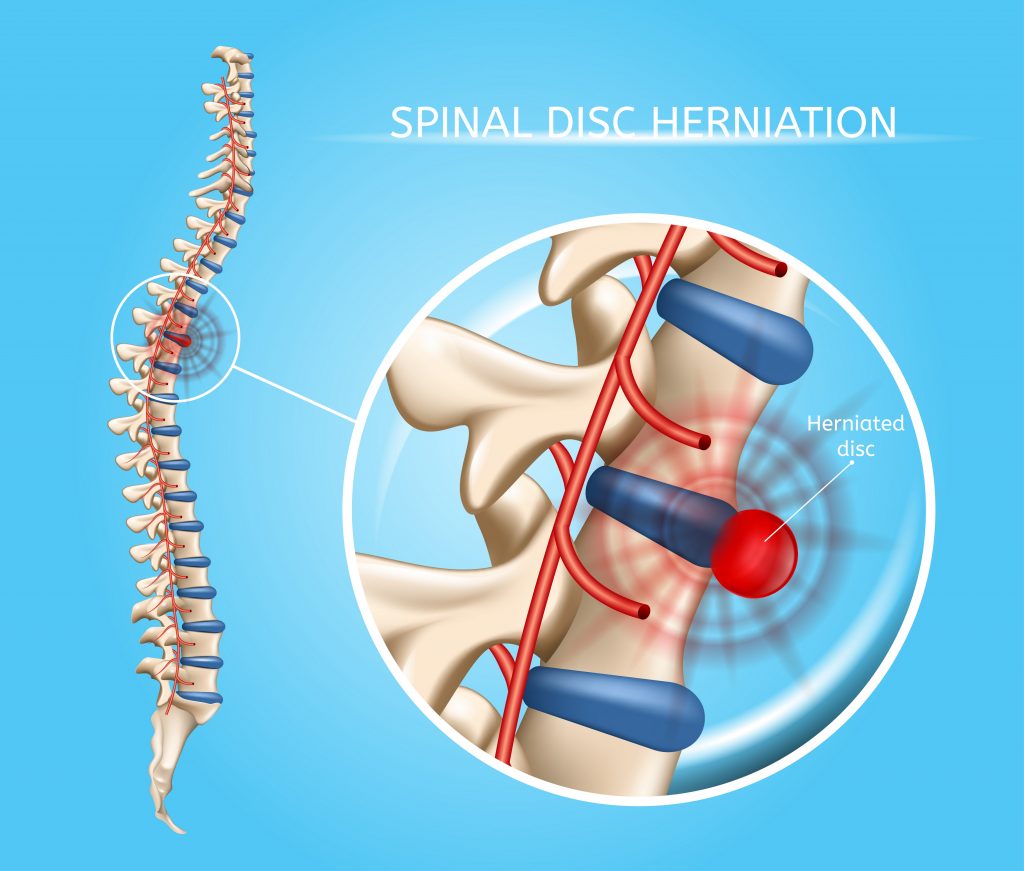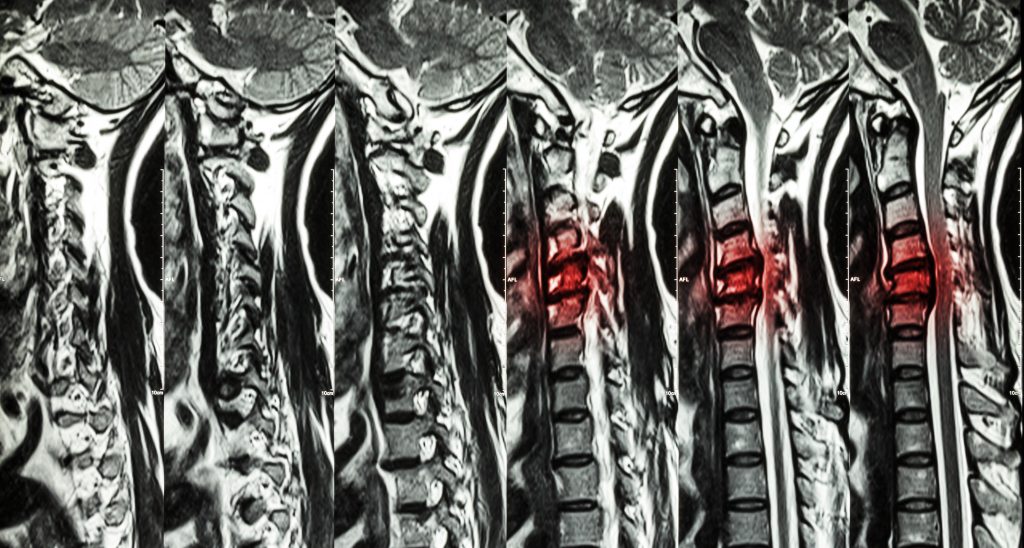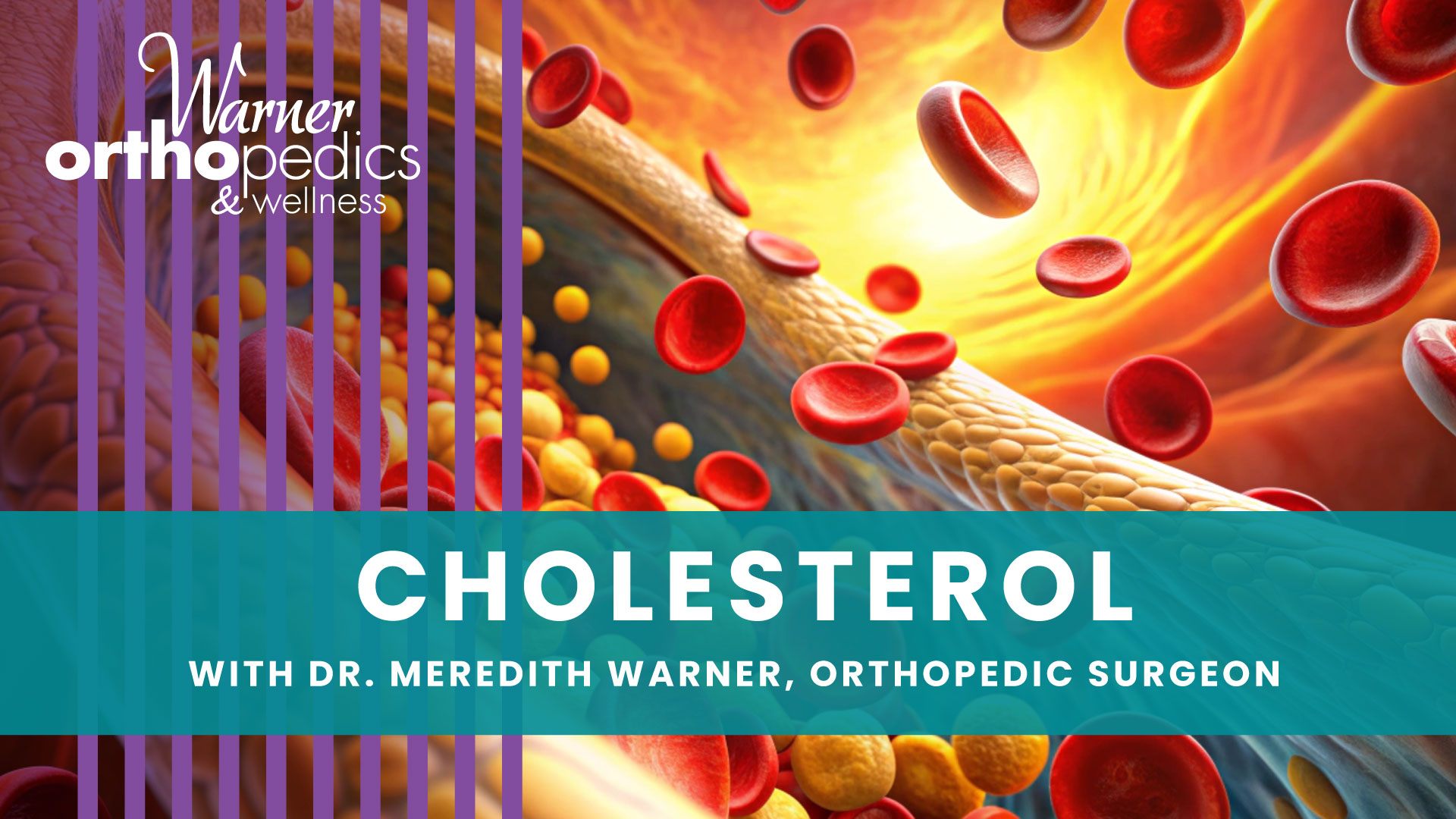Could Your Back Pain Be a Herniated Disc?
Back pain is one of the most common problems that people suffer from, and most will experience it at some point during their lifetime. In fact, according to the ACA, “low back pain is the single leading cause of disability worldwide.” With back pain being so common, it’s not surprising that many people experience it without knowing the cause could be a herniated disc.

What is a Herniated Disc?
As you may know, your spine is a collection of 26 vertebrae with cushioning discs between them that protect your bones and help to absorb shock placed on the spine from everyday activities. A herniated disc is a protrusion from this disc that results from injury and causes the disc to protrude out from it’s normal position, causing pain and discomfort.
What Are the Symptoms of a Herniated Disc?
Identifying whether or not you have a herniated disc is of course best left to your physican, but there are several symptoms to keep an eye out for that can help you to identify whether or not your suffering from a herniated disc.
- pain or numbness on one side of your body
- pain that gets worse at night
- pain while standing or sitting
- tingling or burning sensations near the affected area
- pain while bending forward and returning upright
- shooting pain that travels to your arms or legs
The severity of these symptoms and the pain associated with them will vary, but it is recommended that you seek professional medical care should you experience any of these symptoms, so that the root cause of your pain can be properly identified.

How to Know if You Have a Herniated Disc?
The only way to know you have a herniated disc with certainty is to be examined by a doctor. Your doctor will give you a physical examination in order to identify the source of your pain. In addition to nerve function and strength tests, your docto may using imaging tests to examine your spine in detail such as:
- X-Rays
- MRIs
- CT scans
How is a Herniated Disc Treated?
As with an injury, there are a variety of treatment options and a herniated disc is no different. Treatments can range from pain medication to help manage your pain to surgery in severe cases. Your treatment method will depend on the severity of the disc’s displacement and the level of discomfort you’re feeling. Some common treatment methods include:
- Physical therapy
- An exercise program to help strengthen your back muscles
- Over the counter pain medication and/or muscle relaxors
- Avoiding heavy lifting and strenous activity temporarily
In more severe cases, your doctor may recommend surgery if your condition isn’t responding well to the more common treatments. Surgery can be done to remove the damaged portion of the disc or could mean actually removing the disk completely or replacing it with an artificial disc.
If you’re dealing with back pain and are concerned you may have a herniated disc, let us help!






